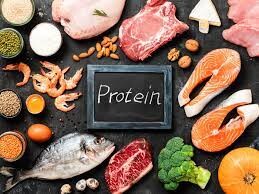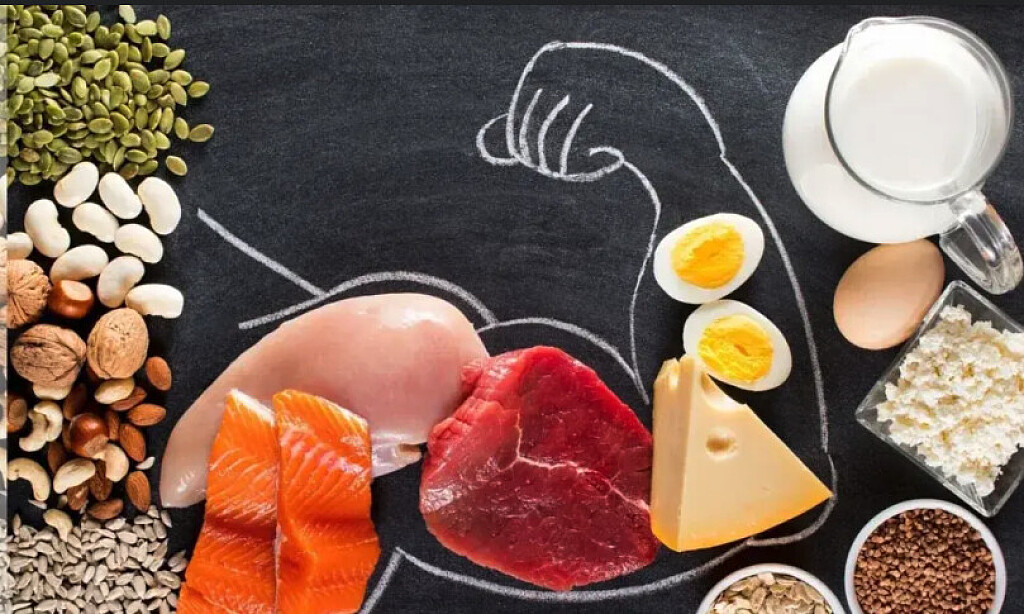Running News Daily
Running News Daily is edited by Bob Anderson. Send your news items to bob@mybestruns.com Advertising opportunities available. Train the Kenyan Way at KATA Kenya and Portugal owned and operated by Bob Anderson. Be sure to catch our movie A Long Run the movie KATA Running Camps and KATA Potato Farms - 31 now open in Kenya! https://kata.ke/
Index to Daily Posts · Sign Up For Updates · Run The World Feed
You Need to Fuel Strength Training Differently. Here's How to Do It Right.
In the off-season, many runners head to the weight room for a strength-focused training block. Strength training is a different stimulus for the body than the aerobic nature of running, and therefore requires a different kind of fueling. Most people associate weightlifting with protein powders, and for good reason: dietary protein triggers the metabolic adaptation and rebuilding of muscle, a process known as muscle protein synthesis (MPS). But eating for strength is not quite as simple as just eating more protein.
The nutrition strategies for muscle building and strength are complex and interrelated. To get the most out of your work in the weight room, lean into these important factors when planning your strength training and daily diet.

Timing of protein intake
Not only is it critical to meet your daily protein and energy needs, but the timing of protein and carbohydrates is key to optimizing strength gains and recovery.
The window of anabolic opportunity begins in the hour before a strength session and lasts up to 24 hours after resistance training.
Pre-workout
Consume 15-20g protein, 25-50 grams of carbohydrates (carbs), and 16-24oz of water in the hour before resistance training. If an aerobic endurance session follows your resistance training, increase carb intake to kickstart glycogen replenishment.
During a workout
Fueling during a strength session depends on whether you are coming from an endurance session, missed the pre-workout snack, or are going into an endurance workout next. Generally, it is not necessary to fuel during a session unless you need some energy. In that case, a sports drink with carbohydrates is a good idea. Regardless, plan on bringing water and always start your workout well-hydrated.
Post-workout
To enhance muscle repair, accelerate glycogen repletion, and promote favorable changes in body composition, plan for a snack or meal containing both protein and carbohydrate.
In the early recovery phase (0-45 minutes after a workout), consume 15-25 grams of protein along with 25-50 grams of carbs and 20 ounces of fluid per pound of weight lost during the session. It's worth noting that consuming more than 40 grams of protein at once has not been shown to enhance the muscle rebuilding response. Just because the body-building world glamorizes the consumption of protein, more is not necessarily better. If you consume more protein than is needed, the extra protein is either burned for energy, which is not very efficient, or stored as fat, which is likely not desirable.
Your nutritional choices around training are often influenced by convenience and practicality. Unless you are going into a meal, aim for on-the-go food such as Greek yogurt with fruit, peanut butter and honey or jelly sandwich, low-fat cheese, and crackers, chocolate milk, or a protein bar.
Daily Nutrition
Since muscle protein rebuilding is ongoing for at least 24 hours, consuming adequate nutrition to support MPS long after the workout is recommended.
The athlete's size and age are determining factors in how much to consume at one time. Smaller athletes' may need only 15-20g, whereas larger athletes with more muscle mass and higher energy output can easily incorporate up to 30-35g protein at one meal. Older athletes (>55-60 years old) require more protein to achieve the same effect due to the progressive loss of muscle mass associated with the aging process.
To maximize physical adaptation and maintain a robust immune system, the timing and amount of protein/carbohydrate are critical. Here is a general guideline.
Meals
Include protein at each meal (15-35 grams, depending on size and age of athlete).
Snacks
Bridge the gap between meals that are more than four-five hours apart. Include 10-15g of protein in snacks.
Bedtime snack
Dairy protein (made up of whey and casein) is ideal due to casein's slow-releasing nature and the fast-releasing nature of whey. In addition, the whey/casein pairing supports muscle building/repair during the overnight fast.
by Trail Runner Magazine
Login to leave a comment




